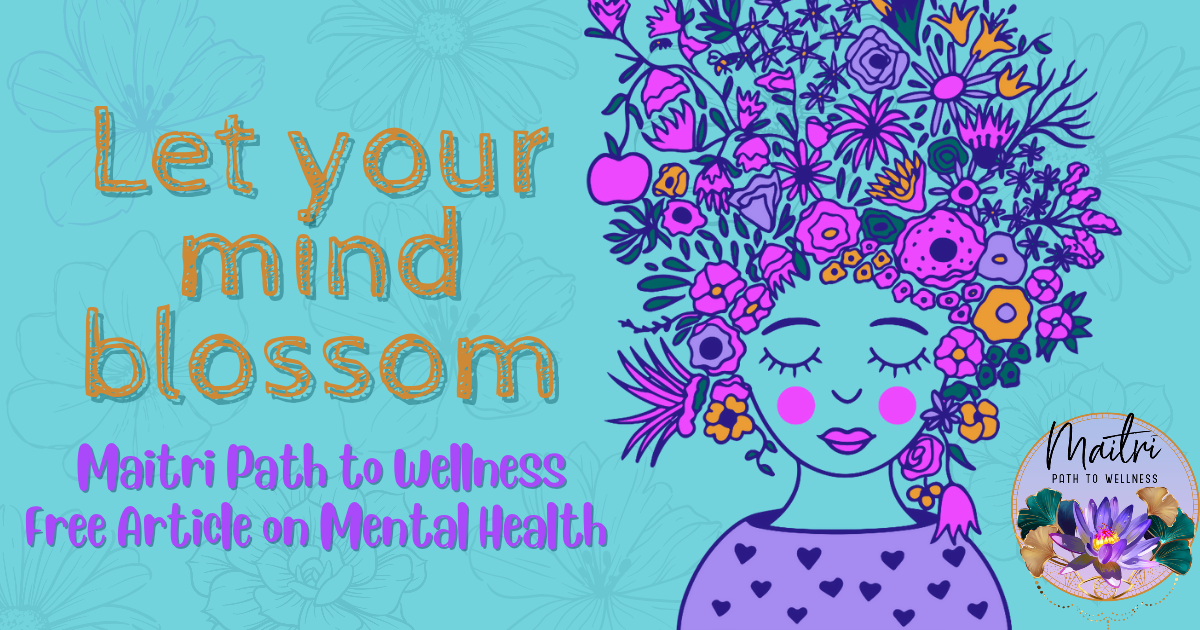Introduction
Anxiety disorders have become increasingly prevalent in today’s society, affecting millions of people worldwide. The impact of anxiety on daily life can be overwhelming, hindering personal and professional growth. However, there is hope for relief. This comprehensive guide aims to provide valuable insights and effective strategies to help individuals overcome anxiety and regain control of their lives.
Understanding Anxiety
Anxiety is a natural response to stress, but when it becomes excessive and persistent, it can develop into a disorder. Generalized anxiety disorder (GAD), panic disorder, social anxiety disorder, and specific phobias are some common manifestations of anxiety. Various factors contribute to the development of anxiety disorders, including genetics, brain chemistry, and life experiences. Furthermore, anxiety often coexists with other mental health conditions, such as depression and obsessive-compulsive disorder (OCD).
Recognizing Anxiety Symptoms
To effectively address anxiety, it is essential to recognize the symptoms. Anxiety can manifest in physical, cognitive, and emotional ways. Physical symptoms may include increased heart rate, muscle tension, and shortness of breath. Cognitive symptoms may involve excessive worry, racing thoughts, and difficulty concentrating. Emotionally, anxiety can lead to restlessness, irritability, and a sense of impending doom. Acknowledging and understanding these symptoms is crucial for seeking appropriate anxiety relief.
Types of Anxiety Disorders
Anxiety disorders encompass a wide range of conditions, each with unique characteristics and triggers. Social anxiety disorder is characterized by intense fear of social situations, while agoraphobia involves fear of being in situations that may be difficult to escape. Specific phobias elicit irrational fears of specific objects or situations. Panic disorder is characterized by recurring panic attacks, and generalized anxiety disorder involves persistent and excessive worry. It is important to recognize the specific type of anxiety disorder one may be experiencing to tailor treatment approaches accordingly.
Anxiety Relief Strategies
Finding effective strategies to manage anxiety is paramount. A combination of approaches often yields the best results. Therapy, such as cognitive-behavioral therapy (CBT), is widely recognized as an effective treatment for anxiety. It helps individuals identify and challenge negative thoughts and beliefs, develop healthy coping mechanisms, and gradually confront feared situations through exposure therapy. Medication, prescribed by a healthcare professional, may also be considered in some cases. Additionally, self-help techniques, including mindfulness, meditation, and relaxation exercises, can play a crucial role in anxiety relief.
Coping with Specific Anxiety Disorders
Obsessive-Compulsive Disorder (OCD)
OCD is characterized by intrusive thoughts and repetitive behaviors aimed at reducing anxiety. To manage OCD, a combination of therapy and medication is often recommended. Cognitive-behavioral therapy, specifically exposure and response prevention (ERP), helps individuals gradually confront their fears and reduce the urge to engage in compulsions.
Agoraphobia
Agoraphobia involves fear of situations that may be difficult to escape or where help may not be readily available. Therapy, such as cognitive-behavioral therapy and gradual exposure to feared situations, is a key component of agoraphobia treatment. Support from loved ones and participation in support groups can also provide encouragement and guidance.
Panic Disorder and Panic Attacks
Panic disorder is characterized by recurring panic attacks, which are intense episodes of fear accompanied by physical symptoms. Treatment often involves therapy, including cognitive-behavioral therapy and relaxation techniques. Learning coping mechanisms to manage and reduce panic attacks, such as deep breathing exercises and grounding techniques, can be beneficial.
Anxiety Treatment Approaches
Various treatment approaches exist for anxiety disorders, and it’s important to find the one that works best for each individual. Cognitive-behavioral therapy (CBT) helps identify and challenge negative thought patterns, while acceptance and commitment therapy (ACT) focuses on accepting anxiety and developing strategies to live a meaningful life despite it. Other therapies, such as dialectical behavior therapy (DBT) and eye movement desensitization and reprocessing (EMDR), may be beneficial in specific cases.
Addressing Severe Anxiety Symptoms
Severe anxiety symptoms can significantly impact an individual’s daily life and well-being. In such cases, seeking immediate professional help is crucial. Mental health professionals can provide appropriate interventions, such as intensive outpatient programs or inpatient treatment, to help manage and alleviate severe anxiety symptoms. It is essential to remember that professional support and guidance are available.
The Connection between Anxiety and Depression
Anxiety and depression often coexist, and they can intensify each other’s symptoms. Integrated treatment approaches that address both conditions simultaneously yield positive results. Therapy, medication, and self-help techniques can assist individuals in managing the symptoms of both anxiety and depression and improve their overall well-being.
Support Systems and Community
Social support plays a vital role in anxiety recovery. Building a support system of understanding friends, family, or support groups can provide comfort, encouragement, and a sense of belonging. Connecting with others who have experienced similar struggles offers a valuable opportunity to share experiences, gain insights, and learn coping strategies. Never underestimate the power of support and the positive impact it can have on anxiety relief.
Conclusion
Anxiety may feel overwhelming, but it is important to remember that relief is possible. By understanding anxiety, recognizing its symptoms, and implementing effective strategies, individuals can navigate their anxiety and regain control of their lives. With the right support system, professional guidance, and a proactive approach, anxiety can be managed successfully. Embrace the journey towards anxiety relief and embrace the potential for a brighter, more fulfilling future.
FAQs (Frequently Asked Questions)
What are the most common symptoms of anxiety?
Anxiety symptoms vary but can include excessive worrying, restlessness, fatigue, irritability, and difficulty concentrating.
Can anxiety disorders be cured?
While anxiety disorders cannot be cured, they can be effectively managed through various treatment approaches, leading to significant relief and improved quality of life.
Is medication necessary for anxiety treatment?
Medication can be beneficial for some individuals with anxiety disorders, but it is not always necessary. Different treatment options should be explored, and decisions should be made in consultation with a healthcare professional.
How long does it take to see improvements in anxiety symptoms?
The timeline for improvement varies for each individual. With appropriate treatment and consistent efforts, many people experience noticeable relief within weeks to months.
Can lifestyle changes help reduce anxiety?
Yes, lifestyle changes play a significant role in anxiety relief. Practicing regular exercise, maintaining a balanced diet, getting enough sleep, and managing stress can positively impact anxiety symptoms.
Is anxiety a lifelong condition?
While anxiety disorders can be chronic, it is important to remember that they are manageable conditions. With proper treatment, self-help strategies, and support, individuals can lead fulfilling lives despite their anxiety.
How does health anxiety contribute to overall anxiety levels?
Health anxiety, also known as illness anxiety disorder, can significantly contribute to overall anxiety levels. Excessive worry about health issues and preoccupation with physical symptoms can intensify anxiety and impact daily functioning. Addressing health anxiety through therapy and self-help techniques is crucial in anxiety relief.
What role does exercise play in anxiety management?
Exercise plays a vital role in anxiety management. Physical activity releases endorphins, which are natural mood-boosting chemicals. Regular exercise can reduce anxiety symptoms, improve sleep, and enhance overall well-being. It is recommended to engage in aerobic exercises, such as walking, jogging, or dancing, for at least 30 minutes a day.
How can I support a loved one with anxiety?
Supporting a loved one with anxiety requires empathy, understanding, and patience. Offer a listening ear, validate their feelings, and encourage them to seek professional help. Educate yourself about anxiety disorders to better support them. Avoid judgment and be supportive in their journey toward anxiety relief.

Hey there friend! I’m Brenden Fasken, a passionate advocate for mental health and the transformative power of recovery. As a proud recovering addict, I’ve traveled the winding roads of addiction and emerged on the other side, ready to share my experiences and insights with you. I enjoy sharing blogs that delve into the complexities of mental health, substance use disorders, and the journey of personal growth. I aim to break down barriers, spark conversations, and offer a beacon of hope to those who may be struggling. So, join me as we embark on this empowering journey together, exploring the depths of our minds, celebrating resilience, and embracing the transformative potential within each of us.
Through my own recovery journey, I’ve learned that life’s challenges can be our greatest teachers. With each hurdle, I’ve gained insights and perspectives that have shaped my understanding of mental health and addiction. From the darkest moments to the brightest triumphs, I share personal anecdotes, reflections, and practical advice that I’ve gathered along the way. Together, we’ll navigate the labyrinth of emotions, challenge societal stigmas, and uncover the power of self-care and self-discovery. So, buckle up and get ready for an engaging and insightful ride as we explore the nuances of mental health and embark on a shared quest for personal growth and well-being.

